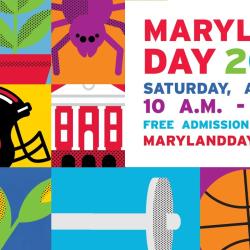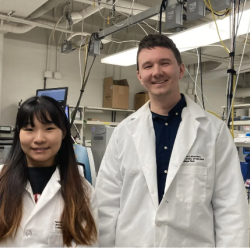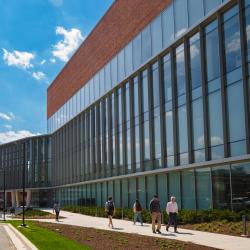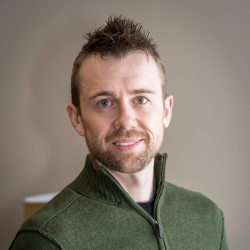Q&A With Lee Friedman, Director of Undergraduate Studies
Friedman, who joined UMD in 2007, shares his experiences and insights in his role
When did you join UMD, and what was your path to working in higher education and student support?
I joined the department in the summer of 2007. I had been a teaching assistant a few times in graduate school and I enjoyed my opportunities to interact with my students. The closer I got to graduation, the more appropriate a career in higher education felt. After earning my Ph.D., I did a teaching postdoc at Princeton University, was an assistant professor at Longwood University for three years, and then I came to UMD.
What does a director of undergraduate studies do?
I'm still learning!! It involves teaching, but also (a lot of) problem-solving, working with students and faculty to provide support, and helping faculty and students navigate their way through classes and through the days and weeks and semesters. It's a very "in the weeds" type of position, and that is something that I think I am good at. The position also leverages everything I've learned over the past 16 years about how the university, the department and courses operate.
What does your day-to-day look like?
It's a lot of emails to start the day. Most of the day is spent doing some combination of replying to emails, talking to students and faculty, and occasionally the associate chair and/or chair of the department. Things sometimes slow down in the late afternoon, so I can sometimes work at a quasi-leisurely pace toward the end of the day and prepare for the next day before heading home.
What motivates you to do your job well?
Ultimately, it is the ability to provide support to faculty and students. If I can do something that puts someone with whom I interact in a better position after our interaction compared to before our interaction, that is very gratifying.
How have the chemistry and biochemistry majors changed since you’ve been here?
We've certainly had an increase in the number of majors, and that has been most noticeable to me. I think with the advent of online document submission via Canvas and online homework, our current majors have more expected of them in some classes than the students from the late 2000s.
The department just launched a B.A. in chemistry. Can you share more about that?
The B.A. in chemistry is a more accessible major than either of the B.S. degrees in chemistry or biochemistry. It was designed with the idea of allowing students who will work in an area related to chemistry but not in a science-intensive area to double major—for example, areas such as law, business, public policy and K-12 teaching to name a few. The major requirements still include physics and math, but the required classes are not as rigorous as the ones required for the B.S. degrees. That said, the B.A. is a stand-alone major that doesn't require a second major or minor. We just started working on a B.A. in biochemistry and hope to roll this out soon.
What do UMD’s chemistry and biochemistry undergraduates go on to do?
Most of our majors go to medical school, graduate school in chemistry or biochemistry, or get jobs at many of the local government labs.
What would you recommend to students as they navigate the chemistry or biochemistry major?
Practice problem-solving during the entirety of your course to better learn the material. Do not wait until a week or so out from an exam to start studying. Chemistry courses, like math and physics courses, are rewarded by constant attention to the course material with the goal of learning the material. Science courses are usually not the kinds of courses where a student can open the book and their notes a week or so out from an exam and begin studying then.
What is your favorite UMD memory?
Probably when I got applause from my students at the end of a semester a few years ago. It was a very gratifying summary of an entire semester and of an experience.
What do you like to do outside work?
Playing escape games, working out, crossword puzzles, reading—I make sure to fit a few pages in when I walk around campus or even from where I park to my office in the morning and afternoon.






